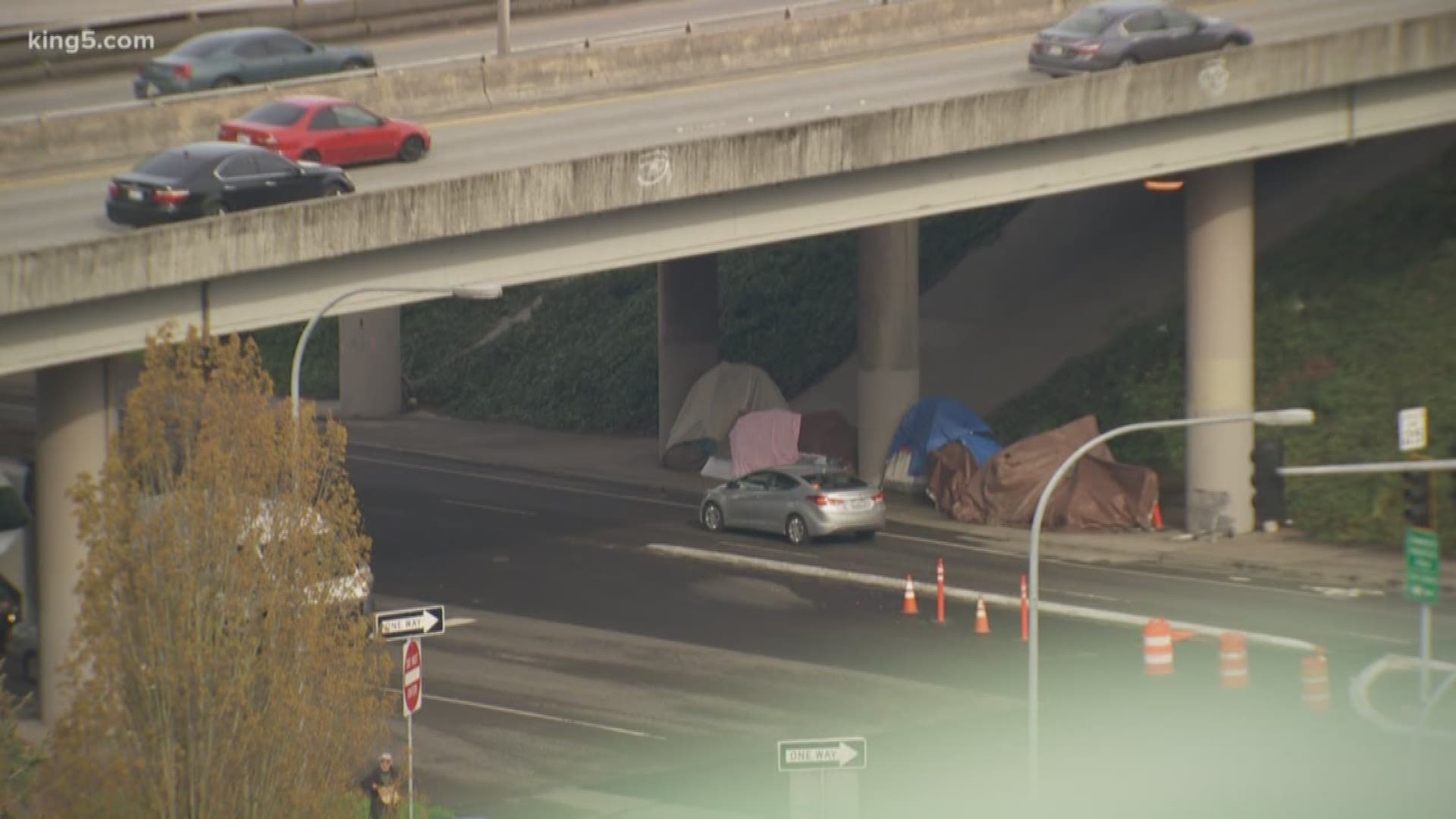The homelessness crisis has been left mostly for cities around Washington to handle. However there's some talk in Seattle about whether the state should take on more of a responsibility.
The issue came up during this year's budget cycle in Olympia.
Tent encampments can be seen along I-5 and I-90 serving as a constant reminder of the crisis. The bleak landscape prompts whispers and complaints about the city's response to the blight. However, I-5 and I-90 are maintained the the state's Department of Transportation.
"It's clearly within DOT property," Sen. Steve Hobbs (D-Lake Stevens) said at a hearing in February. "Those tents right there between I-90 and I-5, they should just be cleaned up."
His counterpart Sen. Curtis King, (R-Yakima) also made an impassioned speech during the same hearing.
“It’s inconceivable to me that we allow people to live where they are living,” said King. “We need to go in there and do what needs to be done.”
Yet, little has happened since the speeches that day. The encampments have grown. There have been fires, and anecdotal stories about any WSDOT worker who even gets close to removal.
Seattle's acting Human Services Director Jason Johnson told the committee that encampment removals on state property account for 20% of all removals by the city’s navigation team, and it had spent $15 million in a year just on removals.
State lawmakers have proposed spending a fraction of the cost to clean up state-owned property.
“What’s equitable is in the eye of the beholder,” said Rep. Jake Fey, (D-Tacoma) who chairs the House Transportation Committee. He has proposed spending a little over $1 million in a pilot program to clean up encampments in his home district.
There is no extra money for Seattle.
Fey said the House budget continued an existing $10 million line item for WSDOT litter removal across the state, and another existing $10 million for Ecology for similar purposes.
“Is it enough? Probably not, but it'll be at the expense of something else,” he acknowledged while pointing out that WSDOT’s first priority is to maintain infrastructure, like roads and the ferry system.
He also said legal waters remain murky about how much right the state has to remove encampments.
“It makes you question what real authority some jurisdictions have,” Fey said.
WSDOT has, within the past year, quietly established fencing at problem spots, but Fey said that’s not a full time solution either.
“There is nothing homogeneous about homelessness,” said Fey.
The state also provides millions in funding for other services to get people out of homelessness.
A Senate transportation bill includes a little over $1 million to address the encampment situation. The Senate and House will now negotiate over some of those line items.
"When the final budget gets done, both of those I suspect will be included in the final budget," Fey said.
The session ends April 28th.

